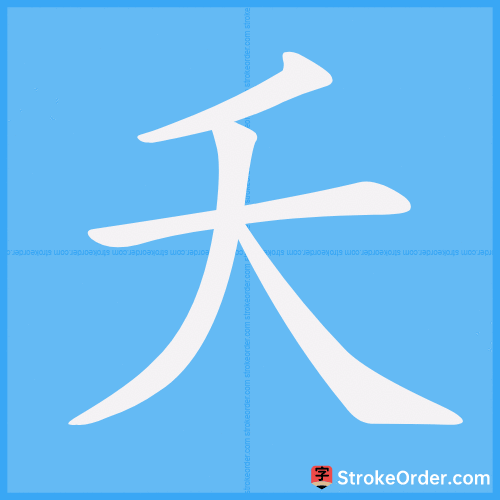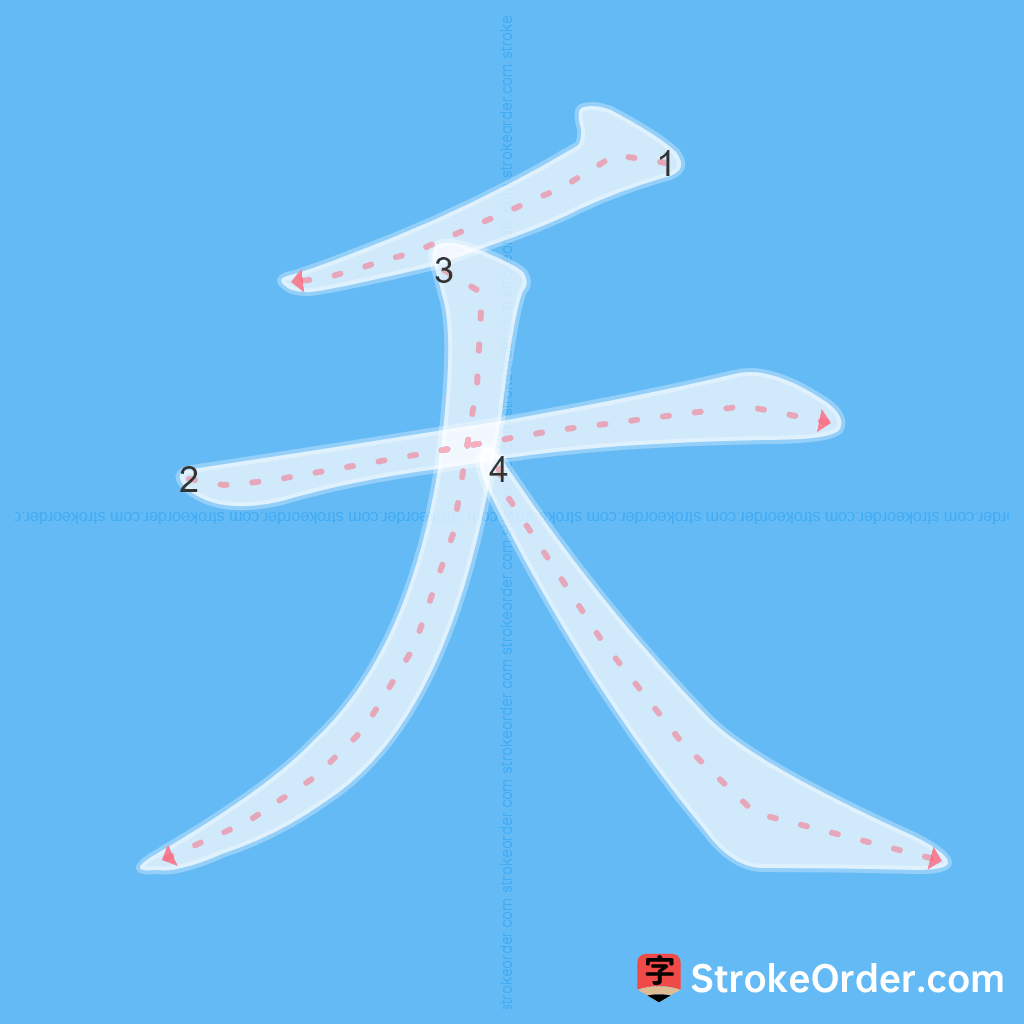夭 Stroke Order
Animated Stroke Order of 夭

Stroke Order Diagrams for 夭

Step-by-Step Handwriting Guide for 夭

Learn to Write Chinese Characters with Video Tutorials
Watch the video of writing the Chinese character "夭", learn the correct stroke order (笔顺) of the character "夭", and master the standard way of writing the character "夭".
Free Printable Handwriting Practice with Stroke Order: 夭
Printable Writing Practice Worksheet of "夭" in Portrait Orientation (Tian Zi Ge)

Printable Writing Practice Worksheet of "夭" in Landscape Orientation (Tian Zi Ge)

Information of 夭
Pinyin
yāo
Radical
大
Strokes
4 strokes
Usage
★★★★★
Definition
tender / gentle / to die prematurely
夭 [yāo]
1. Lush and beautiful vegetation.
草木茂盛美丽。
- a. Abundant and beautiful, as in "桃之夭夭" (the peach trees are lush and beautiful).
- b. A harmonious appearance, as in "夭夭如也" (like the harmony).
- c. Calamity or disaster.
2. The death of a person before reaching adulthood.
未成年的人死去。
- e.g. "夭折" (to die young).
【本义】: To bend or break.
屈,摧折
【造字法】: Pictographic. The small seal script reflects the appearance of a head bending.
---
夭 [yāo]
1. Die young.
短命,早死。未成年而死 ([En.] die young)
- 引: "少壮而死曰夭." (In the "Shiming": dying young is called 夭.)
- 例: "夭死" (to die young).
2. Lush.
茂盛 ([En.] luxuriant)
- 引: "厥草惟夭." (In the "Book of Documents": the grass is lush.)
3. Tender; delicate and charming.
幼嫩;矫好 ([En.] young; be delicate and charming)
- e.g. "夭妍" (beautiful and charming).
4. Related to "杳" (yǎo). Dim or gloomy.
通“杳”。昏暗 ([En.] gloomy)
---
夭 [ǎo]
1. A newly born beast or bird.
刚出生的兽或禽 ([En.] young).
- 引: "毋覆巢,毋胎夭." (In the "Huainanzi": do not cover the nest, do not harm the young.)
2. A newly sprouted plant.
初生的草木 ([En.] young plant).
---
夭 [ǎo]
1. To be bent and not stretch out.
屈抑不伸。
- 引: "德不试,空言禄…" (From "Han Shu": virtue not tested leads to failure.)
2. To die young or prematurely.
少壮而死。如:「夭折」。
- 引: "人无道夭,物极则长。" (From "Wen Xuan": when people have no way, they die young; when things reach the extreme, they endure.)
3. To damage or harm.
摧残。
- 引: "毋伐木,毋夭英,毋附竿。" (From "Guanzi": do not fell trees, do not cut young sprouts.)
Input Method for 夭
Pinyin
yao1
Wubi
tdi
Cangjie
hk
Zhengma
mgd
Four Corner
20804
Unicode
U+592d
Same Pronunciation Characters